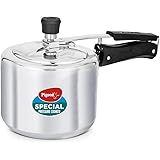The e-commerce landscape is rapidly evolving, driven by technological advancements and changing consumer behaviors. To stay competitive, e-commerce businesses must leverage innovative tools and solutions that streamline operations, enhance customer experiences, and drive growth. One of the most effective ways to achieve this is by adopting Software as a Service (SaaS) solutions.
This article explores key SaaS solutions that can transform your e-commerce operations and help you stay ahead of the competition.
As a leading SaaS app development company, we understand the critical role these tools play in the success of e-commerce businesses.
1. E-commerce Platforms
Shopify Shopify is a leading e-commerce platform that allows businesses to create and manage online stores easily. It offers a range of customizable templates, secure payment gateways, and a robust inventory management system. With Shopify, businesses can set up their stores quickly, manage products, process orders, and track sales, all from a single dashboard.
BigCommerce BigCommerce is another powerful e-commerce platform designed to help businesses scale. It provides advanced features like multi-channel selling, SEO tools, and detailed analytics. BigCommerce is ideal for businesses looking to grow their online presence and manage large product catalogs.
2. Customer Relationship Management (CRM)
Salesforce Salesforce is a leading CRM platform that helps e-commerce businesses manage customer interactions and improve relationships. It offers tools for tracking customer behavior, managing sales pipelines, and automating marketing campaigns. Salesforce’s comprehensive CRM capabilities enable businesses to provide personalized experiences and enhance customer satisfaction.
HubSpot HubSpot is an all-in-one CRM platform that integrates marketing, sales, and customer service tools. It helps e-commerce businesses attract, engage, and delight customers through email marketing, social media management, and customer support automation. HubSpot’s user-friendly interface and powerful analytics make it a popular choice for growing e-commerce businesses.
3. Inventory Management
TradeGecko TradeGecko is a cloud-based inventory management system that helps e-commerce businesses streamline their supply chain operations. It offers features like real-time inventory tracking, order management, and demand forecasting. TradeGecko’s integration with e-commerce platforms ensures seamless inventory management across multiple sales channels.
SkuVault SkuVault is another popular inventory management solution that helps businesses reduce stockouts and improve order accuracy. It offers barcode scanning, real-time inventory updates, and advanced reporting. SkuVault’s integration with various e-commerce platforms and marketplaces makes it a valuable tool for managing inventory efficiently.
4. Payment Gateways
Stripe Stripe is a widely-used payment gateway that enables e-commerce businesses to accept payments online securely. It supports multiple payment methods, including credit cards, debit cards, and digital wallets. Stripe’s robust API allows businesses to customize their payment processes and integrate with various e-commerce platforms.
PayPal PayPal is a trusted payment gateway that offers secure and convenient payment options for e-commerce businesses. It supports various currencies and payment methods, making it ideal for businesses with a global customer base. PayPal’s seamless integration with e-commerce platforms ensures smooth payment processing and enhances customer trust.
5. Email Marketing
Mailchimp Mailchimp is a leading email marketing platform that helps e-commerce businesses create, send, and analyze email campaigns. It offers customizable templates, automation workflows, and detailed analytics. Mailchimp’s integration with e-commerce platforms allows businesses to send personalized product recommendations and drive sales.
Klaviyo Klaviyo is an email marketing solution specifically designed for e-commerce businesses. It offers advanced segmentation, automation, and analytics features. Klaviyo’s integration with e-commerce platforms enables businesses to send targeted email campaigns based on customer behavior and purchase history, resulting in higher engagement and conversions.
6. Analytics and Reporting
Google Analytics Google Analytics is a powerful tool that provides insights into website traffic, user behavior, and conversion rates. E-commerce businesses can use Google Analytics to track the performance of their online stores, identify trends, and make data-driven decisions. Its integration with e-commerce platforms allows for detailed e-commerce tracking and reporting.
Mixpanel Mixpanel is an advanced analytics platform that helps businesses understand how users interact with their websites and apps. It offers features like funnel analysis, cohort analysis, and A/B testing. Mixpanel’s integration with e-commerce platforms provides valuable insights into customer behavior and helps optimize the shopping experience.
7. Customer Support
Zendesk Zendesk is a customer support platform that helps e-commerce businesses manage customer inquiries and provide excellent support. It offers features like ticketing, live chat, and knowledge base management. Zendesk’s integration with e-commerce platforms ensures that customer support teams have all the information they need to resolve issues quickly and efficiently.
Freshdesk Freshdesk is another popular customer support solution that offers multi-channel support, automation workflows, and detailed reporting. It helps businesses manage customer interactions across email, chat, phone, and social media. Freshdesk’s integration with e-commerce platforms allows for seamless customer support and enhances the overall shopping experience.
8. Marketing Automation
Marketo Marketo is a marketing automation platform that helps e-commerce businesses streamline their marketing efforts. It offers features like email marketing, lead nurturing, and campaign management. Marketo’s integration with e-commerce platforms enables businesses to create personalized marketing campaigns and drive customer engagement.
ActiveCampaign ActiveCampaign is an all-in-one marketing automation platform that combines email marketing, CRM, and customer experience automation. It helps businesses create targeted campaigns, automate workflows, and track customer interactions. ActiveCampaign’s integration with e-commerce platforms allows for personalized marketing and improved customer retention.
Conclusion
In the competitive world of e-commerce, leveraging the right SaaS solutions can make a significant difference in your business’s success. From e-commerce platforms and CRM systems to inventory management, payment gateways, and marketing automation tools, SaaS solutions offer a wide range of benefits that streamline operations, enhance customer experiences, and drive growth. As a SaaS app development company, we recommend these key SaaS solutions to help e-commerce businesses stay competitive and thrive in the digital marketplace. Embracing these technologies will enable you to focus on what matters most – delivering exceptional products and services to your customers.
UPRONex21 Portable Mini Sealing Machine | Handheld Packet Sealer for Food, Snacks, Chips, Fresh Storage | Seals Plastic Bags | Compact Heat Sealer | Ideal for Kitchen | White
₹189.00 (as of 15 January, 2025 11:30 GMT +05:30 - More infoProduct prices and availability are accurate as of the date/time indicated and are subject to change. Any price and availability information displayed on [relevant Amazon Site(s), as applicable] at the time of purchase will apply to the purchase of this product.)Wakefit Height Adjustable Hollow Fiber Sleeping Pillow with Zip |(White and Grey, Standard, Set of 2, Microfiber) 3 Months Warranty
₹833.00 (as of 15 January, 2025 11:26 GMT +05:30 - More infoProduct prices and availability are accurate as of the date/time indicated and are subject to change. Any price and availability information displayed on [relevant Amazon Site(s), as applicable] at the time of purchase will apply to the purchase of this product.)Pigeon by Stovekraft 3 Litre Special Aluminium Inner Lid Non-Induction base Pressure Cooker (Silver) BIS Certified
₹499.00 (as of 15 January, 2025 11:26 GMT +05:30 - More infoProduct prices and availability are accurate as of the date/time indicated and are subject to change. Any price and availability information displayed on [relevant Amazon Site(s), as applicable] at the time of purchase will apply to the purchase of this product.)nutripro Copper Juicer Mixer Grinder - Smoothie Maker - 500 Watts (3 Jars, Silver) - 2 Year Warranty
₹1,689.00 (as of 15 January, 2025 11:26 GMT +05:30 - More infoProduct prices and availability are accurate as of the date/time indicated and are subject to change. Any price and availability information displayed on [relevant Amazon Site(s), as applicable] at the time of purchase will apply to the purchase of this product.)Amazon Brand - Presto! Garbage Bags Medium 180 Count|19 x 21 inches Black , For Dry & Wet waste|30 bags/roll (Pack of 6)
₹311.00 (as of 15 January, 2025 11:26 GMT +05:30 - More infoProduct prices and availability are accurate as of the date/time indicated and are subject to change. Any price and availability information displayed on [relevant Amazon Site(s), as applicable] at the time of purchase will apply to the purchase of this product.)Discover more from The General Post
Subscribe to get the latest posts sent to your email.





